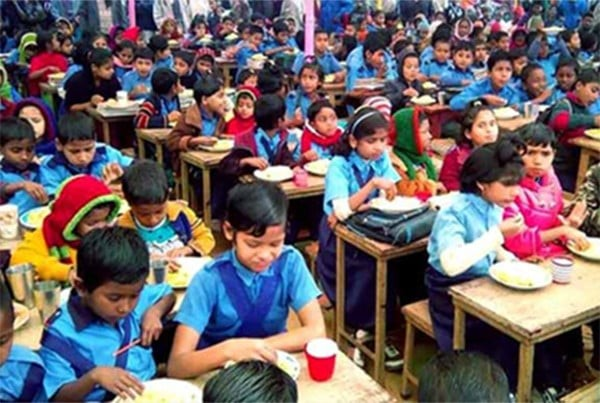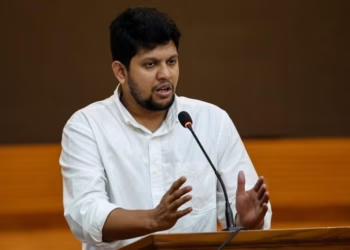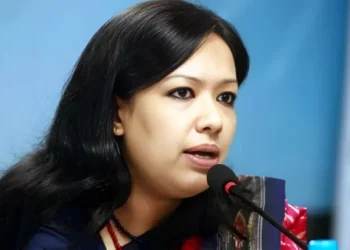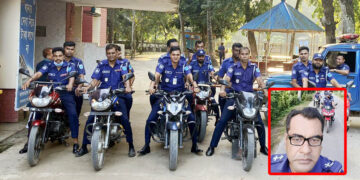Midday Meals Begin in July for Poor-Area Schools
Starting from July 2025, about 33 lakh children in government primary schools across poor areas of Bangladesh will receive free midday meals five days a week. These meals will include milk, eggs, bread, biscuits, and seasonal fruits.
Two school feeding projects are being launched:
-
One in 150 upazilas with the Bangladesh government’s own funding
-
Another in 15 upazilas of Cox’s Bazar and Bandarban with World Bank funding
Large Budget Allocation for the Program
In the upcoming national budget, the government has allocated Tk 2,164 crore for the “School Feeding Programme in Government Primary Schools.” The project will be managed by the Directorate of Primary Education (DPE).
Each upazila will have a local committee led by the Upazila Nirbahi Officer (UNO) to ensure smooth operation of the program.
Read More: 14 Cargo Planes Land in Israel with US-German Weapons
Goals: Reduce Hunger and Improve Education
The temporary government has taken this initiative to:
-
Increase student attendance
-
Reduce malnutrition
-
Encourage education
-
Help students complete primary school successfully
DPE Targeting Launch in July or August
According to DPE Director General Abu Noor Md Shamsuzzaman, the goal is to start the project in July. If that’s not possible, they will begin in August. He said that Project Directors have already been appointed for both the government- and World Bank-funded projects.
He confirmed that both projects will begin at the same time, and children will receive meals five days a week.
Where and Who Will Get the Meals
Government-Funded Project:
-
Will cover 19,419 primary schools in 150 upazilas across 62 districts
-
91% of these areas are high or very high poverty zones
-
About 31.3 lakh children will benefit
World Bank-Funded Project:
-
Will run in 1,095 schools (569 in Cox’s Bazar and 436 in Bandarban)
-
About 2.11 lakh students will benefit
-
Children from Rohingya communities in Cox’s Bazar and Bhasan Char will also be included
What Will Be in the Meals?
A weekly meal plan has already been prepared:
-
Sunday, Tuesday, Thursday: One egg and one 120g bun
-
Monday: 200 ml UHT milk and one 120g bun
-
Wednesday: 75g biscuit and one banana or seasonal fruit
The meals are designed to provide:
-
25.9% energy
-
32.2% micronutrients
-
16.4% protein
-
21.7% fat of a child’s daily need
Expected Benefits of the Program
The Directorate says the feeding program will:
-
Bring more children to school
-
Help reduce dropout rates
-
Improve classroom attendance
-
Increase concentration in studies
-
Overall, raise the quality of primary education
The project will run for three years, with plans to expand it to all schools across the country in phases.
Why This Program Matters
At a recent event, Professor Dr. Bidhan Ranjan Roy Poddar, education advisor, said:
“Eggs, buns, and bananas are basic nutritional needs for children. Many families cannot afford them. This program helps children stay in school longer and reduces hunger. One important aim is to tackle child malnutrition, which has serious long-term effects. The project also includes a health component.”
Background of School Feeding in Bangladesh
Bangladesh first started school feeding programs in 2001 with support from the World Food Programme (WFP). From 2001 to 2010, poor-area schools provided fortified biscuits to students.
Later, a more focused project called “School Feeding in Poverty-Stricken Areas” ran until June 2022, offering only nutritious biscuits.
Now, the new program will offer a variety of fresh and nourishing food, aiming to improve children’s health, learning, and school attendance.
Source: Kaler Kantho


















